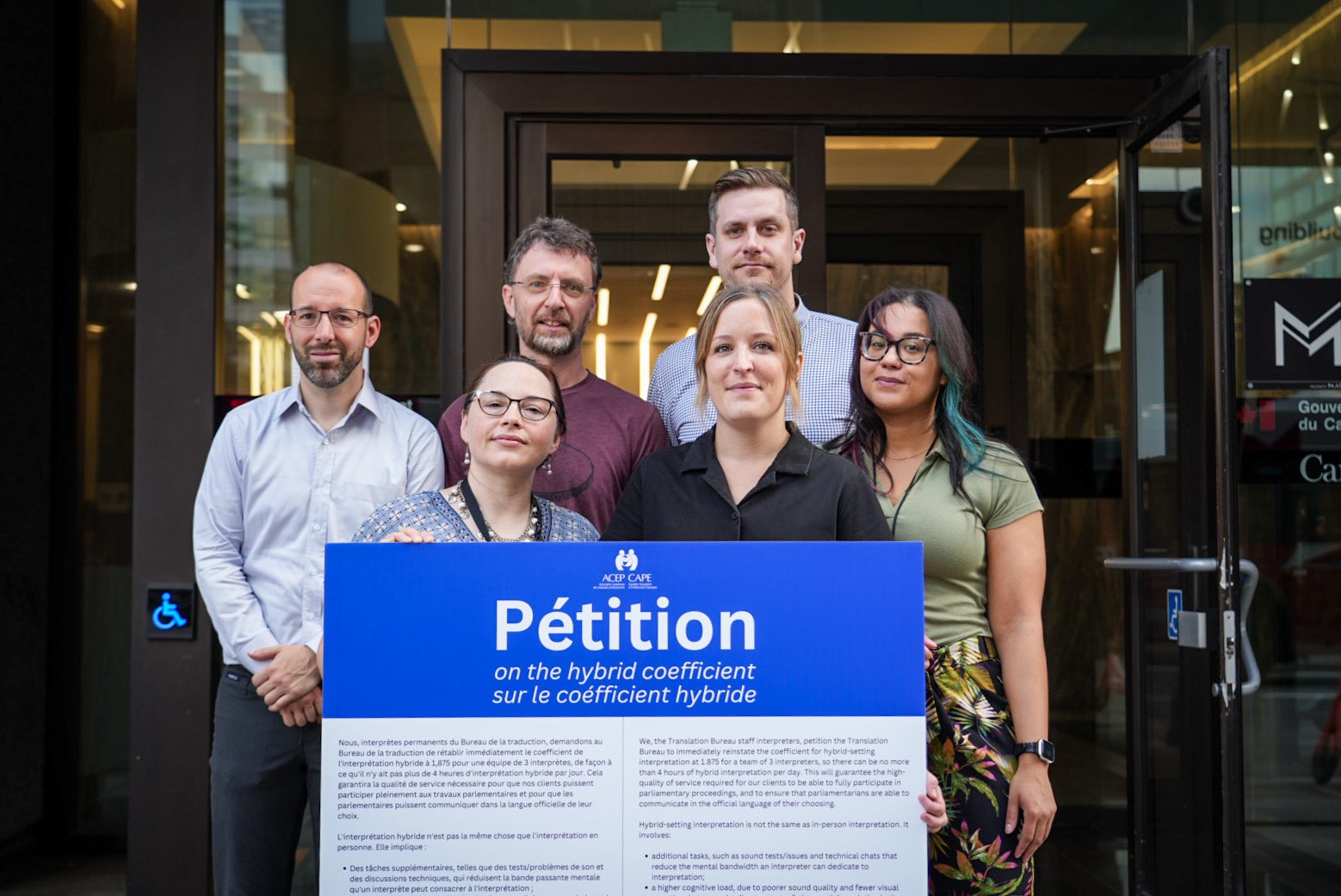
Staff parliamentary interpreters are taking a clear stand, petitioning Jean-François Lymburner, CEO of the Translation Bureau, to ensure their hybrid interpretation shifts are solely dedicated to interpretation-related tasks, free from unrelated activities, so that their core work is recognized and compensated.
In a controversial decision announced back in December 2023 that sparked widespread outcry, the Translation Bureau began assigning additional tasks to interpreters in February 2024 under the pretext of them having “extra time” to spare during their hybrid shifts. This decision ignored the numerous tasks needed to prepare for hybrid meetings, now having to be completed during interpreters’ unpaid hours. It also overlooked the increased mental load associated with hybrid interpretation, which directly impacts the quality of service interpreters can provide, as well as the increased risk to their health and safety, as evidenced by the much higher number of workplace accidents since the pandemic.
“Ignoring the mental effort deployed during hybrid interpretation and all the work required to prepare for hybrid meetings by assigning additional tasks to fill a non-existent time gap means interpreters must work longer hours, while exposing themselves to toxic sound and potential acoustic incidents, without the rest and compensation they deserve.” said CAPE President Nathan Prier. “This violates fundamental principles of fair labour practices and respect for professional expertise and undermines the quality of interpretation in Parliament.”
The petition was signed by more than 90 per cent of official languages staff interpreters, represented by the Canadian Association of Professional Employees (CAPE). This united effort marks a pivotal moment as interpreters across the federal government advocate for professional respect and are still grappling, after many years, with severe health and safety issues downplayed by the employer. Since the move to hybrid settings in 2020, interpreters have experienced higher rates of workplace injuries due to poor or inadequate equipment that can cause audio feedback.
Interpretation plays a crucial role in ensuring the smooth and effective functioning of the Canadian Parliament. As a bilingual and multicultural nation, Canada values linguistic diversity and inclusivity, which is reflected in its parliamentary proceedings conducted in both English and French. Interpreters facilitate clear communication between parliamentarians, enabling debates, discussions, and deliberations to be understood by all participants regardless of their primary official language, while allowing the information to also be accessible to all Canadians.
The petition was delivered to Mr. Lymburner in his office on Wednesday, June 19, by staff interpreters and CAPE representatives led by CAPE President Nathan Prier.


